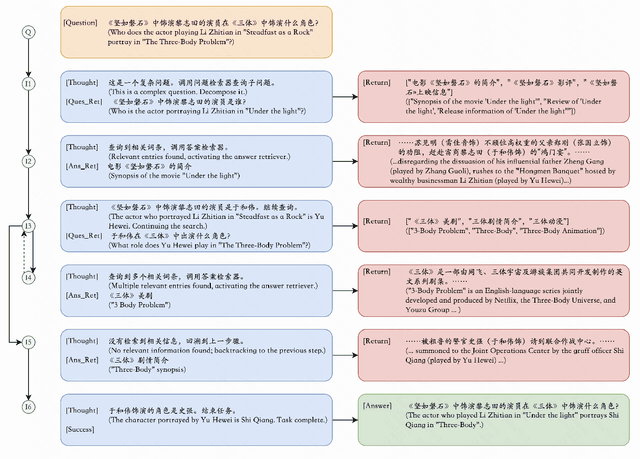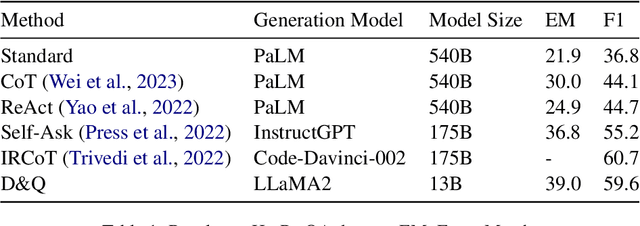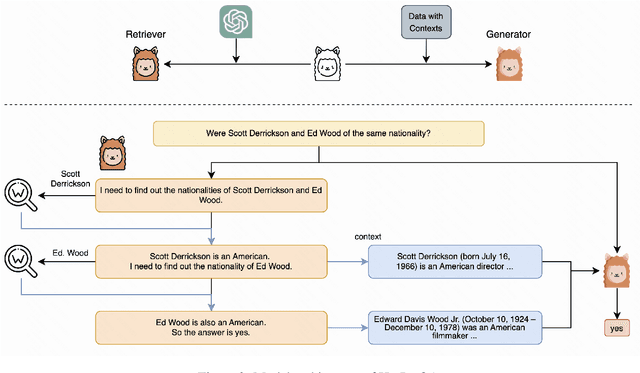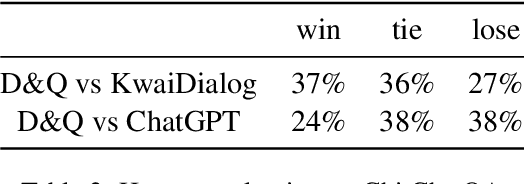Zhenwei An
Harder Tasks Need More Experts: Dynamic Routing in MoE Models
Mar 12, 2024Abstract:In this paper, we introduce a novel dynamic expert selection framework for Mixture of Experts (MoE) models, aiming to enhance computational efficiency and model performance by adjusting the number of activated experts based on input difficulty. Unlike traditional MoE approaches that rely on fixed Top-K routing, which activates a predetermined number of experts regardless of the input's complexity, our method dynamically selects experts based on the confidence level in expert selection for each input. This allows for a more efficient utilization of computational resources, activating more experts for complex tasks requiring advanced reasoning and fewer for simpler tasks. Through extensive evaluations, our dynamic routing method demonstrates substantial improvements over conventional Top-2 routing across various benchmarks, achieving an average improvement of 0.7% with less than 90% activated parameters. Further analysis shows our model dispatches more experts to tasks requiring complex reasoning skills, like BBH, confirming its ability to dynamically allocate computational resources in alignment with the input's complexity. Our findings also highlight a variation in the number of experts needed across different layers of the transformer model, offering insights into the potential for designing heterogeneous MoE frameworks. The code and models are available at https://github.com/ZhenweiAn/Dynamic_MoE.
A Step Closer to Comprehensive Answers: Constrained Multi-Stage Question Decomposition with Large Language Models
Nov 13, 2023



Abstract:While large language models exhibit remarkable performance in the Question Answering task, they are susceptible to hallucinations. Challenges arise when these models grapple with understanding multi-hop relations in complex questions or lack the necessary knowledge for a comprehensive response. To address this issue, we introduce the "Decompose-and-Query" framework (D&Q). This framework guides the model to think and utilize external knowledge similar to ReAct, while also restricting its thinking to reliable information, effectively mitigating the risk of hallucinations. Experiments confirm the effectiveness of D&Q: On our ChitChatQA dataset, D&Q does not lose to ChatGPT in 67% of cases; on the HotPotQA question-only setting, D&Q achieved an F1 score of 59.6%. Our code is available at https://github.com/alkaidpku/DQ-ToolQA.
Lawyer LLaMA Technical Report
May 24, 2023



Abstract:Large Language Models (LLMs), like LLaMA, have exhibited remarkable performances across various tasks. Nevertheless, when deployed to specific domains such as law or medicine, the models still confront the challenge of a deficiency in domain-specific knowledge and an inadequate capability to leverage that knowledge to resolve domain-related problems. In this paper, we focus on the legal domain and explore how to inject domain knowledge during the continual training stage and how to design proper supervised finetune tasks to help the model tackle practical issues. Moreover, to alleviate the hallucination problem during model's generation, we add a retrieval module and extract relevant articles before the model answers any queries. Augmenting with the extracted evidence, our model could generate more reliable responses. We release our data and model at https://github.com/AndrewZhe/lawyer-llama.
Do Charge Prediction Models Learn Legal Theory?
Oct 31, 2022Abstract:The charge prediction task aims to predict the charge for a case given its fact description. Recent models have already achieved impressive accuracy in this task, however, little is understood about the mechanisms they use to perform the judgment.For practical applications, a charge prediction model should conform to the certain legal theory in civil law countries, as under the framework of civil law, all cases are judged according to certain local legal theories. In China, for example, nearly all criminal judges make decisions based on the Four Elements Theory (FET).In this paper, we argue that trustworthy charge prediction models should take legal theories into consideration, and standing on prior studies in model interpretation, we propose three principles for trustworthy models should follow in this task, which are sensitive, selective, and presumption of innocence.We further design a new framework to evaluate whether existing charge prediction models learn legal theories. Our findings indicate that, while existing charge prediction models meet the selective principle on a benchmark dataset, most of them are still not sensitive enough and do not satisfy the presumption of innocence. Our code and dataset are released at https://github.com/ZhenweiAn/EXP_LJP.
 Add to Chrome
Add to Chrome Add to Firefox
Add to Firefox Add to Edge
Add to Edge